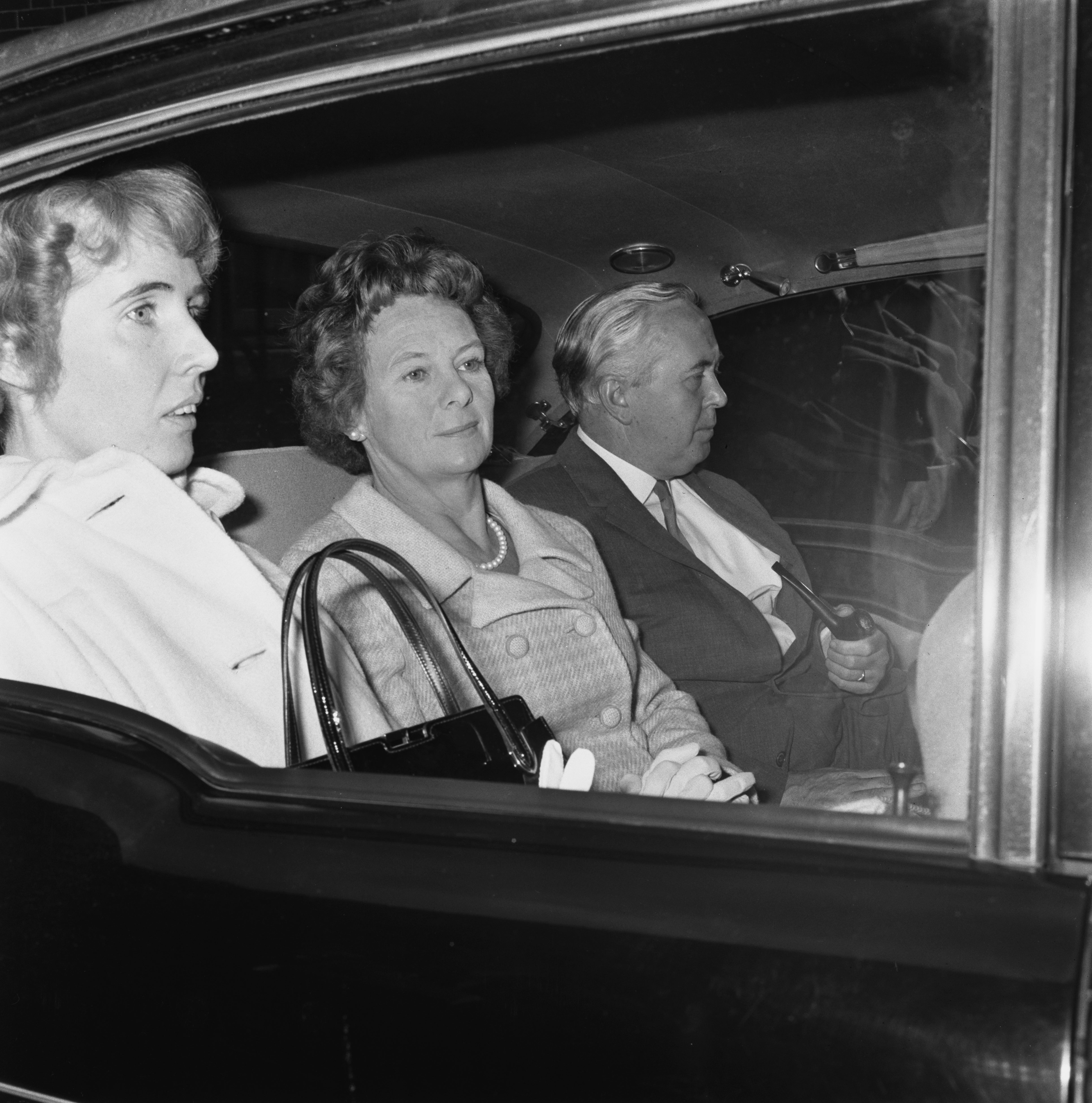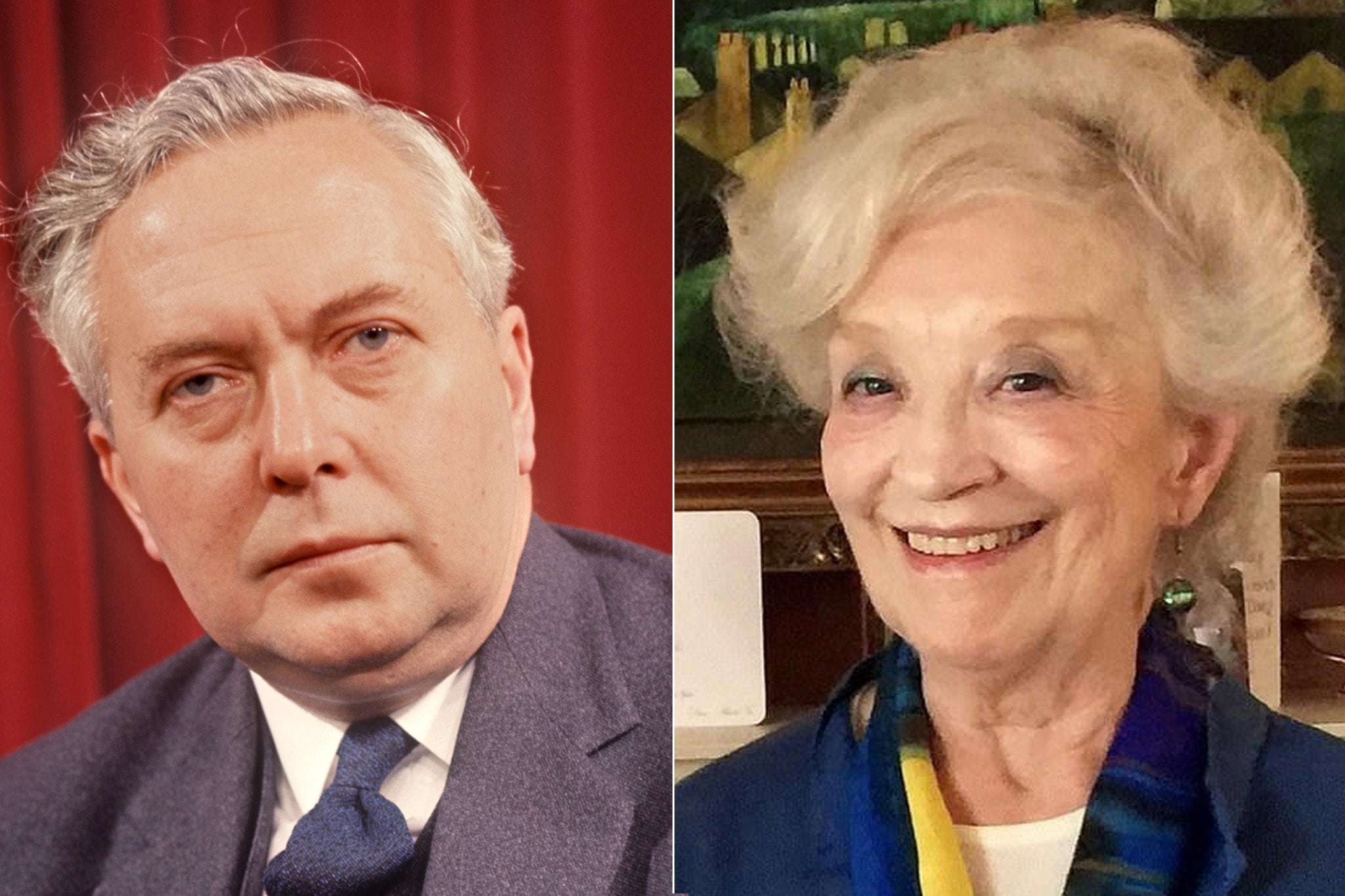The real surprise about Harold Wilson’s ‘new’ affair: How did it stay secret for 50 years?
As the late prime minister is revealed to have had a second affair – ‘a little sunshine in the sunset’ during his final, unhappy term in office in the mid-1970s – Sean O’Grady asks why it has only now come to light, and what other leaders might learn about managing their extra-marital activities


Harold Wilson’s most famous quote was that “a week is a long time in politics”. As with a lot of what Wilson said, you soon realise that it didn’t actually mean anything and that it was an, admittedly, typically brilliant piece of deflection to excuse some or other U-turn. But you only realise that Wilson didn’t answer the question long after the interview is over.
Now, the quip is still endlessly recycled by politicians and headline writers alike who find themselves in a tight corner, a living tribute to Wilson’s versatile and mischievous wit – “purposeful” wit, as he might have put it.
So I don’t feel much shame in remarking that 50 years is an awfully long time to keep a political secret, which the few surviving members of his entourage (the original No 10 “kitchen cabinet”) have done regarding Wilson’s fling with his then-deputy press officer, Janet Hewlett-Davies.
Her boss, and long-term Wilson spin doctor, Joe Haines, and a policy adviser, Bernard, now Lord, Donoughue, knew all about the relationship which seems to have blossomed in Wilson’s final term of office, between 1974 and 1976, when he retired. Only now, however, have Haines and Donoughue chosen to make it public, though to what great purpose I’m not sure.
Unlike his tempestuous relationship with his political secretary, Marcia Falkender, which was very briefly physical way back in the 1950s, this fling, such as it was, with the also married Hewlett-Davies, doesn’t seem to have had any policy repercussions or any deleterious effect on the functioning of No 10. Donoughue says he and Haines waited until both had passed on before detonating this rusty, unexploded bombshell, and only did so for the sake of a more complete historical record – “a little sunshine in the sunset”, as Donoughue says.
She made him happy, apparently, which is something to note. Haines reports that the affair “increased [Wilson’s] morale”. Maybe she persuaded him to retire as his faculties were beginning to fade. That’s speculation, though.
Could a secret such as Wilson’s be kept from the public for as long nowadays, asked Donoughue on the Radio 4’s Today programme. Well, obviously not. To see that, we only have to glance back at Boris Johnson, who pretty much conducted his unconventional private life in the public domain without any embarrassment whatsoever, and even a wisp of pride in his many conquests and indefatigable virility. It would take too long, perhaps more than a week, to run through the details of all his extra-marital activities, but the episode when the neighbours had to call the police because he was having a row with his then-girlfriend, Carrie Symonds, in her flat and they thought a murder was taking place sticks in the memory.

That was not long before he assumed the premiership and she became his third wife (that we know of). This is a former prime minister, after all, who has always been bashful about how many children he’s responsible for. Indeed, we don’t even need to go back to Johnson to spot infidelity. Admittedly, some time before she became premier, or even an MP, Liz Truss had a well-publicised relationship with a Tory MP, Mark Field, who was a “mentor”.
Times change but, of course, Wilson’s private life wasn’t entirely a secret. The splenetic Lord Hailsham, an uncompromising Tory opponent of Wilson in the Sixties, dropped a heavy hint about adultery committed by members of the Labour front bench during the Profumo affair. That sparked some chatter, reflected a little in Private Eye and the gossip columns, but nothing much came of it. Later, when some wild accusations about Wilson being a Russian spy started circulating, it was supposed that he’d been recruited because the KGB had gathered compromising material about him and Falkender during a trip to Moscow.
There was also the strange incident of the pop band’s promotional postcard in 1967 that featured a cartoon of the PM in bed with his political secretary, Falkender. Wilson successfully sued The Move (ironically, his barrister was Hailsham), and the band had to agree to donate the royalties from their hit, “Flowers in the Rain”, to charity, in perpetuity. But, on the whole, Wilson’s private life was a closed book outside press and political circles.
You can see why things are very different now. Our ever-more ravenous traditional media has now been supplemented with scurrilous blogs. Private Eye and the newspaper diary columns have been joined by the likes of gossip blog Popbitch. And, of course, we suffer the wild conspiracy theories spread by cranks and Russian bots on social media, all well beyond the reach of the libel lawyers. The Princess of Wales is just the latest high-profile subject of this trend.
Modern communications have created their own risks, as the phone hacking scandals, the WhatsApp messages uncovered in the Covid inquiry, and the still-frothing Will Wragg imbroglio prove. The private lives of politicians are more prone to discovery than at any other time in history. It is also rarer now for political aides and colleagues, and the lovers themselves, to keep their counsel for as long as they do, the temptations of minor celebrity and the money to be made tempting them out of their desire for privacy.
Loyalty is a currency, it feels, that depreciates more rapidly. To be fair to her, for example, Edwina Currie did wait until John Major left office before she revealed their affair, conducted before he became premier but, unlike this latest Wilson revelation, she didn’t wait until Major and his wife had died. Currie was good enough to delay her confession until 2002, but it didn’t add that much to our understanding of the politics of the 1990s.
It’s true to say that it may explain why Major hesitated to run for the Tory leadership when Thatcher quit in 1990, because if it had leaked then it might have brought the whole show down. It also makes one wonder, once again, why Major made such a misjudgement with “Back to Basics” (which wasn’t about family values so much, even though everyone thought it was). But, in the end, Currie ended up not as the co-pilot in Major’s ascent to greatness, as she once fantasised, but a footnote in history, the affair having been long over before Major arrived in No 10. She thought him “a sexy beast”, and presumably he felt the same about her.
The more you discover about the prime ministers who did carry on dalliances in No 10, the more understanding you get. Ramsay MacDonald, for instance, was a very lonely widower but still handsome by the time he became Labour’s first prime minister, which made his close friendships with a variety of women, including aristocratic society hostesses, all the more comprehensible. His infamous betrayal of the Labour Party, by throwing his lot in with the Tories in the great financial crisis of 1931, was sometimes blamed on him being literally seduced by the ruling classes, but he was vain enough to be able to make his own mistakes.
Herbert Asquith, radical Liberal premier of the Edwardian era by day, was also fond of the ladies. Whether he harmed the national effort by writing letters to his friend Venetia Stanley, Lady Digby, during the cabinet meetings in the Great War is still discussed by historians; the public and the men on the front of course knew nothing of it.
The most notorious philanderer in modern times to reach No 10 was David Lloyd George, a man so randy and who supposedly fathered so many illegitimate children he makes Boris Johnson, let alone Wilson, seem like a eunuch. Ffion Hague, wife of William, wrote an entertaining and well-researched account of the loves of Lloyd George in 2008, and the odd thing is that despite his habitual infidelity to his wife, Margaret, Lloyd George’s relationship with his principal mistress, Frances Stevenson, lasted more than three decades, longer than most marriages.
Indeed, this other life of theirs lasted so long that after Margaret died, and very late in both their lives, Lloyd George married Frances. He was 80 by then, but still as mesmerising to Frances as when she first met the old goat in 1911. “I fell under the sway of his silver voice and his electric personality. I felt myself drawn in some mysterious way into his orbit,” she said.
Before then, Stevenson, who, like Falkender and Hewlett-Davies had worked closely with Lloyd George in No 10 and after, had had a miscarriage and, possibly, a daughter by him, as well as a few affairs of her own. Lloyd George, an enthusiast for sex in its cruder manifestations, was pretty open about his partnership with Stevenson, but the law and a slightly greater degree of defence on behalf of the press, and the barons that controlled them, mean that details about the private lives of Lloyd George, MacDonald and Asquith only emerged long after.
So did the terrible sadness in Harold Macmillan’s marriage. In the 1950s and 1960s, Harold and “Lady Dorothy” were regarded as rather a sweet, doting old couple – but the reality was that Dorothy had been having an affair with one of Macmillan’s rivals and colleagues, Bob Boothby, for decades, and had even had a daughter by him, which Macmillan brought up as his own. How Macmillan put up with it all would be interesting to learn, but that really is lost to history.
In the end, then, despite the sometimes startling, if not shocking, aspects of the private lives of our premiers, it is impossible to know whether their love lives – or, in the case of the asexual bachelor Edward Heath, lack of one – affected the fortunes of the nation.
The evidence is that lovers, such as with Wilson, Asquith and Lloyd George, sometimes enjoyed great influence, often offered comfort, some wisdom and occasionally added to stress levels but, without being dismissive, made little real difference. It’s always fascinating to peek behind the curtains or the bedroom door, but we should be sceptical about how the many lovers who’ve cuddled, canoodled and romped around Downing Street helped to win a war or fix the economy.






Join our commenting forum
Join thought-provoking conversations, follow other Independent readers and see their replies
Comments